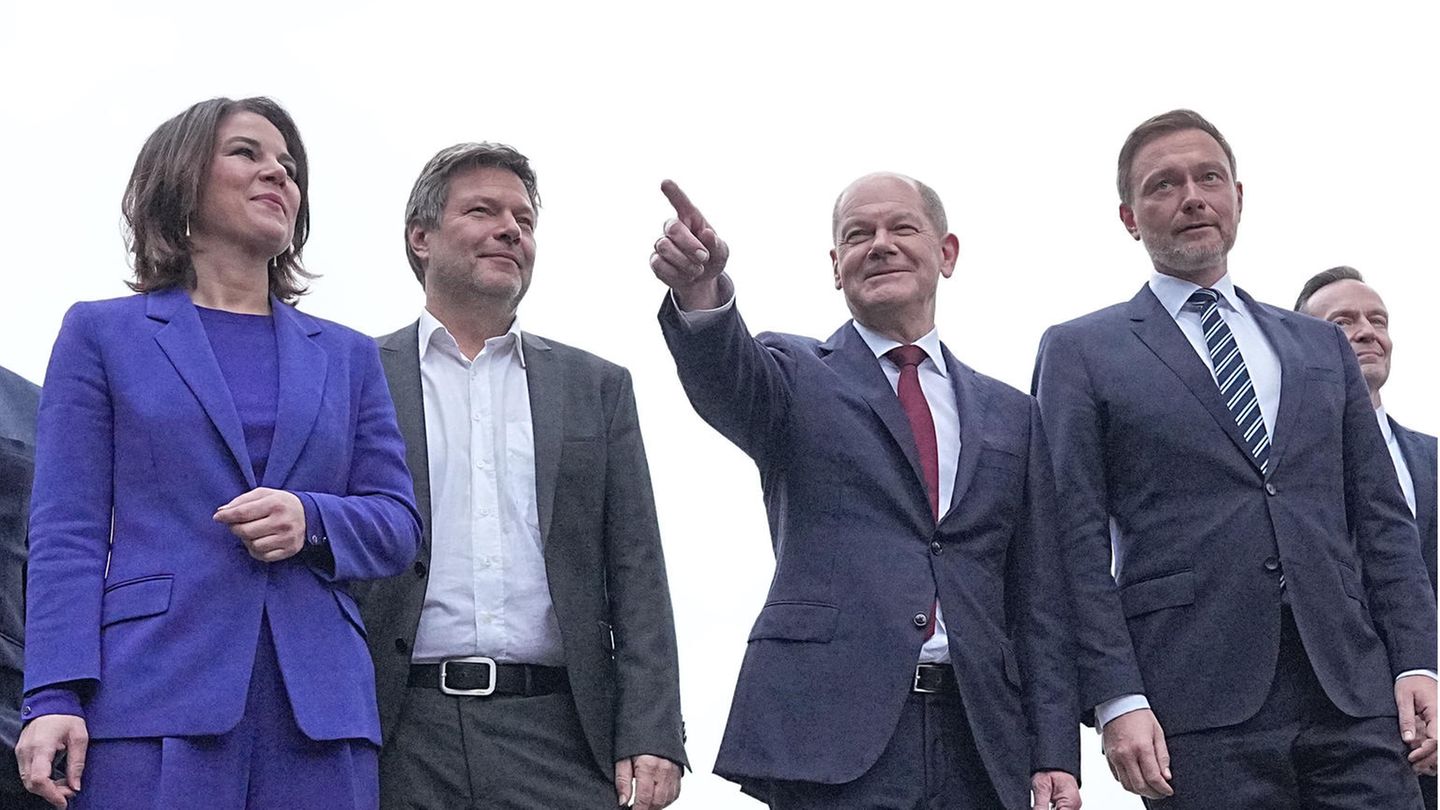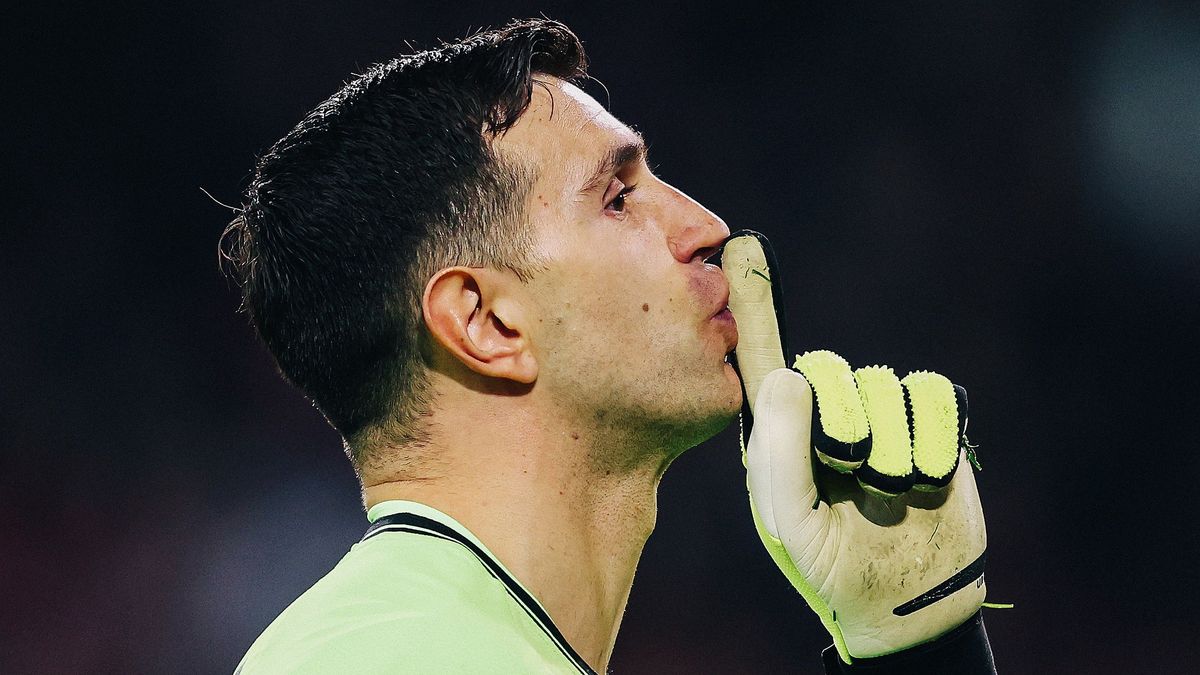If it weren’t for the pandemic, the traffic light parties would certainly have announced their “Progress Alliance” with fanfare. But that is not appropriate in times of crisis. First of all, it is important to contain the Corona. But hardly anyone trusts the future coalition to do that.
By Jan Rosenkranz, Berlin
At 3 p.m. sharp they strode across the quay wall of Berlin’s West Harbor and directly towards the waiting cameras: the main negotiators from the SPD, Greens and FDP, the future Chancellor, the Vice Chancellor, the party leaders and general secretaries of the three parties. Like a traffic light corridor. “The traffic lights are up,” announced their leader Olaf Scholz of the SPD, the future and ninth Chancellor of the Federal Republic of Germany.
But that is not the first sentence that Scholz will say this afternoon. It’ll be a moment before then. It begins, due to the pandemic, as heavy as lead. Just no howl of triumph, no victorious poses, no champagne flutes – none of this is befitting in times when the fourth corona wave is keeping the country in suspense. And so Scholz begins with a 7-point corona plan that the traffic lights want to tackle immediately. From a federal-state crisis team to a permanent pandemic expert council, from a massive vaccination campaign to a 1 billion euro bonus for the troubled nurses. For what they have achieved – and will probably have to do in the future.
With that the tone is set, it will not be much more joyful this afternoon.
Olaf Scholz: “We are united by our belief in progress”
This is another reason why the negotiators hastened to present their 177-page coalition agreement this Wednesday, exactly 60 days after the general election. “Dare to make more progress” is what the traffic light coalitionists want. It is no coincidence that the title of their pact sounds like Willy Brandt, who wanted to “dare more democracy” with his first social-liberal coalition.
“We are united by our belief in progress,” says Scholz. With all opposites, of course. And they really had a couple of powerful sentences written down, which they now put forward with full emphasis: “We are not concerned with a policy of the lowest common denominator, but rather a policy of the greatest impact,” says Scholz. A policy “in which opposites complement each other and can thus be overcome,” says his future Vice Chancellor, the Green Robert Habeck. And the next finance minister, Christian Lindner, seconded: They wanted “not a coalition of exclusive, but of complementary politics”.
Let no one think that progress has made it too easy
That was not easy because these parties “have not exactly hidden their differences in the past few years,” as Lindner says. Sure, that shouldn’t be missing on such a day, the emphasis on how difficult it was, how they would have argued and struggled, sometimes “hours over individual sentences”, because everyone has to go through their committees, through party congresses, in case of the result the Greens even through a member vote. Let no one think that progress has made it too easy.
The flyers with the now unavoidable QR codes, which are displayed in all press areas in the exhibition hall, are also supposed to convey this unconditional will to progress. Scanned at the right time, they should lead to the coalition agreement. Some red, others green and yellow. However, most cell phones cannot recognize the codes. The contrast is only sufficient with the yellow flyers and so in the end everyone ends up on the side of the FDP. Digitization first, concerns second. It is almost the only moment of brief serenity in the room.
The traffic light must also dare to be optimistic
Of course, the traffic light women and men present try to be optimistic, and you can see that many are relieved to have done it in the end. In this time of fear and uncertainty, it is so important, as Habeck emphasizes, that “at least now and then there is a sign of courage and confidence”. They would have wanted to present such a sign with the document today.
However, before the traffic light can take care of the digitization of the country and the decarbonization of the economy, it has to defeat Corona, it has to end a state failure in which it was not entirely uninvolved in the past weeks and months. Scholz, previously on a strategic dive, now has to show his colors. The hesitation and hesitation of the past few weeks could already extend to a mortgage for the traffic lights.
Only a few trust the traffic lights to contain Corona
Because there is not only another depressing Corona winter looming. As the numbers rise, so does people’s trust in those involved in politics. This also applies explicitly to the traffic light parties. According to a Forsa survey, just 13 percent believe that the SPD is able to contain the pandemic. Five percent trust the FDP and the Greens only three percent. After all: Scholz is using the appearance today as a signal of determination, repeating the mandatory vaccination requirement for certain occupational groups, which has already been decided in principle – and also expressly does not rule out a general vaccination requirement if the corona situation does not relax again soon.
In essence, the number of infections in the coming weeks will raise an explosive question: Who should actually believe that Olaf Scholz and his self-proclaimed progress coalition can solve the human task of the climate crisis in the future if it gets bogged down in the presence of a fourth corona wave?
Source From: Stern
David William is a talented author who has made a name for himself in the world of writing. He is a professional author who writes on a wide range of topics, from general interest to opinion news. David is currently working as a writer at 24 hours worlds where he brings his unique perspective and in-depth research to his articles, making them both informative and engaging.




